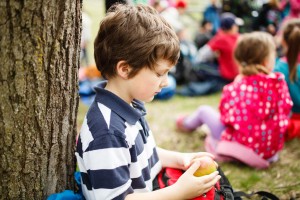Having years of experience leading weekly social skills groups in NYC for children of all ages and as the longtime owner of a social skills summer camp, I (Dr. Rosenthal) put together this checklist for parents to ask prospective group leaders when choosing a social skills group.
(My answers are in parentheses).
 What are the weekly skills being taught? Is there a set agenda for each group or is the group more free-flowing. Is there a manual being used? What are some books or models being employed?
What are the weekly skills being taught? Is there a set agenda for each group or is the group more free-flowing. Is there a manual being used? What are some books or models being employed?
(We created a custom manual based on the work of several leaders in the field. We teach making introductions, non-verbal communication, empathy, making chit-chat, etc… Please contact us for the semester list of skills being taught.)
- Can you give an example of how you might teach one particular skill? This will give you a flavor for how the kids actually learn the material and what happens in group each week.
(For making introductions, we ask the children to practice introducing themselves to each member of the group as if it’s the first time. They also each take turns interviewing and presenting each other to the group. We focus on eye contact, body position, tone of voice, quantity/quality of information to shared, and greeting and exiting language)
- What is the format of the group – how is the time structured? Are there set periods of time for each section of the group? Is there a skills time? Is there a discussion time? Is there a reward time? Or is it all blended together?
(We use a Structured-Teaching Model for our younger groups, children ages 7-11: The children arrive, put away their belongings, make chitchat for 5 mins, then we start the skill. We define and explain why the skill is important to friendships. Then we show a custom made video demonstrating positive and negative examples of the skill. Children then break into groups to practice the skill via role plays, games and exercises. During this time, children earn SocialStars (spontaneous pro-social behaviors) which they redeem as a group during reward time. After reward time, children review the skill and how they can use it at home and school. For the last 10 minutes, I meet separately with all the parents at once to discuss last week’s homework, today’s skill and this week’s homework.)
- What is the staff-to-child ratio? How many children are there for each adult? The lower the ratio the better.
(Our groups have 1 staff for every 3 kids. Sometimes 1:2)
- What are the staff profiles? Who are the staff and what is their experience and training in child groups? Are they being supervised? Are they licensed? Have they run this exact group before? Have the co-leaders worked together before
(I am a clinical psychologist with many years experience running groups and the owner of a social skills summer camp. My associate staff are licensed master’s level professionals. My support staff are graduate students in special education and social work. We have all worked together by either leading groups or at my social skills camp.)
- What are the child profiles? Are the kids the same age? Same grade? Same diagnosis? Same language and cognitive abilities? Are any of the kids aggressive or have medical problems?
(The children in my groups are all within 2 years of age and 1-2 grades. I accept boys and girls together but tend to get more boys. Some have a formal diagnosis of ADHD, Asperger’s, Anxiety or LD, and others do not. All the children acknowledge difficulty with friends and the desire to have more friends or better friendships. None of the children are aggressive, have medical issues or impaired language or cognitive abilities.)
- What is the level of parent involvement? Is there homework? Do parents attend group with the children? Do parents meet separately with the leaders? How are the skills taught in group generalized outside of group?
(I see all parents and children before group for a clinical interview. Once accepted into the program, I meet with all the parents together to discuss last week’s homework, today’s skill and this week’s homework. This is a crucial part of the program. Parents have the chance to share positive and negative examples, give/receive support and problem-solve how to help their child with social skills. With parental consent, I share parents contact information to schedule play-dates.)
- What is the level of school involvement? Are the teachers informed about the skills being taught? Do you use a daily report card at school?
(Many of the children in my group also receive social skills training at school via an eDRC, which I develop and monitor. The eDRC helps the student practice many of the same skills from group at school, but in a private manner so his/her peers don’t know about it. By including the school, children learn social skills much faster. This is optional and additional charge.)
- Do you give any pre and post assessments to measure change? Are there intake assessments for me or my child or the teachers? Do you track behaviors in group?
(We give parents a custom pre and post-group measure of the social skills being taught. We also track SocialStars so parents can see how active their child is in group each week. We include this data in the final report.)
- What is the feedback process? How often will I get feedback about how my child is doing in group? Is there a report at the end? Do we meet in person for a feedback session?
(We give parents weekly feedback at the parent meeting during the last 10 minutes of group. Parents receive a handout with the skill being taught, how to teach the skill at home and the number/type of SocialStars earned in group. At the end of group, parents also receive a brief report with a narrative, graphs of the data collected, and recommendations.)
Overall, we offer the following in our social skills groups:
- High staff-to-child ratio
- Manualized and structured teaching approach based on research
- Pre & post measures and in-group monitoring of SocialStars
- Weekly parent feedback sessions and homework handouts
- Final group report with data and recommendations
- Integration of social skills training at school via the eDRC (optional)





